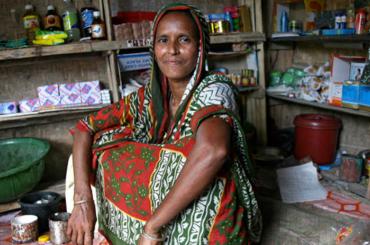
Discrimination
-

Unfair rentals: Discrimination against transgender couples in Latin America
Does discrimination based on gender identity or sexual orientation during the housing search add to existing forms of discrimination and marginalisation? Does this further limit the opportunities for LGBTQ+ people in Latin America?
-

Can conversations about a minority reduce discrimination?
Evidence from India shows that discussions between peers from the same majority-group that include topics involving transgender people can be effective at reducing anti-transgender discrimination.
-

Lessons from Sesame Street on media representation, racial biases, and voting
Representation in child media matters. Sesame Street’s positive representations of minorities and working women in 1969 had long run impacts on prejudices, influencing people’s propensity to vote for diverse candidates decades later.
-

Paternalistic gender discrimination: Evidence from labour markets in Bangladesh
Employers can discriminate and restrict women from taking up employment opportunities deemed unsafe. Research from Bangladesh suggests female workers entering the labour market may suffer most from paternalistic discrimination, where male workers ‘pr...
-

Caste, identity, and worker productivity in India
While caste-based occupations may hold 'productivity benefits', removing the discriminatory links between low castes and work brings even larger gains
-

Bad taste: Gender discrimination in consumer lending
Discrimination in consumer lending seems to come largely from biased male officers; combatting it may require cultural changes at the institutional level
-

Something to complain about: How minority representatives overcome ethnic barriers
Access to formal complaints technologies improves minorities’ strategic bargaining power within local government and improves public good provision
-

Does your cultural background affect your credit profile?
In Indian banks, cultural proximity (shared beliefs, ethnicity) between lenders and borrowers increases access to credit and reduces default
-

Missing unmarried women
Being unmarried, especially through widowhood, can have substantial effects on relative rates of female mortality in the developing world